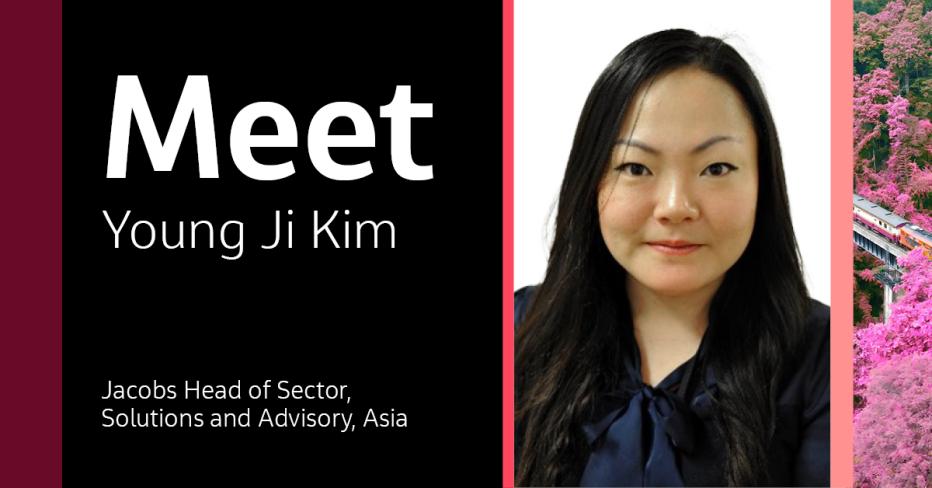
Can you tell us how the work you do is helping deliver Jacobs’ strategy?
Our solutions and advisory practice consist of a diverse team of technical specialists, advisors and practitioners across environmental, digital, design and strategy who are at the forefront of client solutions across climate response, data solutions and consulting and advisory.
Tell us about your journey with Jacobs.
For over 15 years, I have held various roles at Jacobs including consultant, project manager, team leader and program manager. Across these roles, I had the opportunity to take on diverse responsibilities and multiple hats which helped me cultivate a strategic mindset within the realm of strategic advisory.
In my current role, I am responsible for leading the growth and development of our Solutions & Advisory team of more than 100 practitioners across Asia, helping our clients to deliver modern and future-ready infrastructure, decarbonize and de-risk their portfolio and create inclusive, resilient and equitable places.
What are you most excited about in Asia?
I am most excited about the opportunities in such a burgeoning market and the development of infrastructure in Asia. In this region, many components of critical infrastructure such as roads, bridges, railways, airports and ports are reaching the end of their asset lifecycle, and as a result, they are in need of significant upgrades and improvements. Most of these critical assets were designed and constructed during the economic boom of the 1970s and 1980s and may need to be updated to meet the modern-day challenges and demands of the region. This is particularly challenging in Asia, where many countries are still developing, facing talent shortages and resource constraints to allocate funds for infrastructure maintenance and upgrades.
For our team, this region presents a unique challenge of modernizing aging infrastructure while embracing digital technologies for progress and growth and I find this incredibly exciting.
What do you think are some of the biggest challenges facing the infrastructure market in this region?
The need for upgrades and improvements is particularly pressing for critical infrastructure assets, such as airports, seaports and power grids, which are essential for supporting economic growth and development. If these assets fail or become outdated, they can have a significant impact on the region's economic performance and competitiveness. To address this challenge, there is a growing need for innovative, cost-effective and long-term solutions that can help extend the lifespan of aging infrastructure assets while ensuring that they remain reliable and efficient. This is where Jacobs' solutions and advisory team can play a critical role by combining our global domain expertise, with our consulting approach to support asset owners and operators in upgrading and modernizing their infrastructure.
Another challenge we’re seeing in the Asia infrastructure market is the need for a more holistic approach toward development. Due to varying levels of experience, some clients may struggle to adopt a more comprehensive perspective. In many cases, infrastructure development projects in Asia have been approached on a project-by-project basis, rather than taking a broader, more integrated view of the overall infrastructure needs of a region or country. This can result in a fragmented and disjointed approach, with a focus on immediate needs rather than long-term planning and optimization.
In addition to this, some clients may not have the skillset or experience to take a more comprehensive perspective on infrastructure development, which can lead to missed opportunities for synergies and efficiencies across projects. There is a need to implement a more holistic approach to infrastructure development, with a focus on integrated planning and optimization of existing assets, as well as future investments. To ensure sustainable and equitable development in Asia, it is crucial to balance the imperative for rapid development with long-term considerations, including the potential impacts on sustainability, community wellbeing and social equity. This will require collaboration between various stakeholders, including government agencies, private investors and infrastructure operators, to align interests and work towards common goals.
Can you discuss the role of Jacobs’ Solutions and Advisory team in enabling Jacobs’ growth accelerators – climate response, data solutions and consulting & advisory? In Asia, what are some of the opportunities in this space?
In Asia, we see a significant focus on climate response, and our team has been instrumental in assisting our key global and regional clients in developing and implementing their sustainability targets and roadmaps. Our advisory services are always grounded in data, as we believe that this allows infrastructure owners and operators to make evidence-based decisions. For instance, we recently helped a transport authority in Asia embark on a transformation journey to adopt an asset management framework and shift towards evidence-based decision-making. In the healthcare sector, we established a risk management framework to enhance infrastructure resilience. Furthermore, our digital solutions team has been instrumental in connecting data sets and offering meaningful insights to support clients, utilizing tools such as geospatial mapping. Overall, we believe that there are tremendous opportunities in this space in Asia, particularly in the realm of climate response and the utilization of data-driven approaches to infrastructure development and management.
What are the emerging challenges facing the rail sector?
One emerging theme is the adoption of a collaborative delivery model. For example, railway organizations are facing resource constraints and are struggling to balance budget and time constraints, which has resulted in delayed projects and overspending. To achieve better outcomes, there is a need to explore how contractors, clients, and other stakeholders can work together more effectively. This concept started in Europe but is now gaining traction in Asia, where the procurement process for design and build contracts has proven to be a challenge and often poses constraints on the potential for innovation and cost-effectiveness. As a result, there is a growing recognition that bolder steps are needed to explore new contract arrangements that can better align the interests of all stakeholders and promote collaboration throughout the project life cycle.
Another emerging theme is the adoption of digital solutions in the railway sector. Many railway organizations aspire to leverage digital technology, but they risk failing due to cost concerns or a focus on procurement rather than the need for structured, governed and connected data across all assets. To realize the full potential of digital technology, it is critical to establish a comprehensive and integrated strategy that takes into account all aspects of railway operations, from rolling stock and infrastructure to passenger experience and operational processes.
Reliability is also a key concern in the transport sector, especially in aging Asian railways where incidents and breakdowns are becoming increasingly common. While dealing with these incidents is important, preventing them from occurring in the first place is another challenge altogether. Finding ways to predict and prevent failures, rather than just reacting to them, is critical to improving the reliability of transport infrastructure.
Tell us about an interesting project you’ve been involved in.
I’ve been involved with a transformation journey with a railway owner in Asia to implement asset management at organization level.
Tell us an interesting fact about you.
Having spent a significant portion of my teenage years in Sri Lanka before moving to England at the age of 18, I was exposed to the challenging realities of a country in the midst of a war. During that time, bombings and curfews were a frequent occurrence in the city. Unfortunately, even my school was not spared as it was often targeted due to the enrollment of government officials' children. As a result, strict security protocols were in place for us students, becoming a part of our daily routine. At that point, I had come to accept this heightened state of security as the norm, unaware of the contrasting experiences that awaited me upon my move to England.
Proudest career moment?
Being recognized for adding value to our clients which is experienced on every engagement.
What do you enjoy most about being part of #OurJacobs?
I truly believe that our values are practiced within Jacobs: We do things right. We aim higher. We challenge the accepted. We live inclusion.
About the interviewee
Young Ji Kim is a transformation business leader focused on infrastructure advisory, technology enablement and talent strategy. She leads the growth and development of Jacobs’ Solution & Advisory business in Asia. Bringing more than 15 years of cross-sector experience in strategic advisory, she helps infrastructure owners and operators to deliver future-ready infrastructure, decarbonize and de-risk their portfolio and create inclusive, resilient and equitable places.
You might be interested in...
-
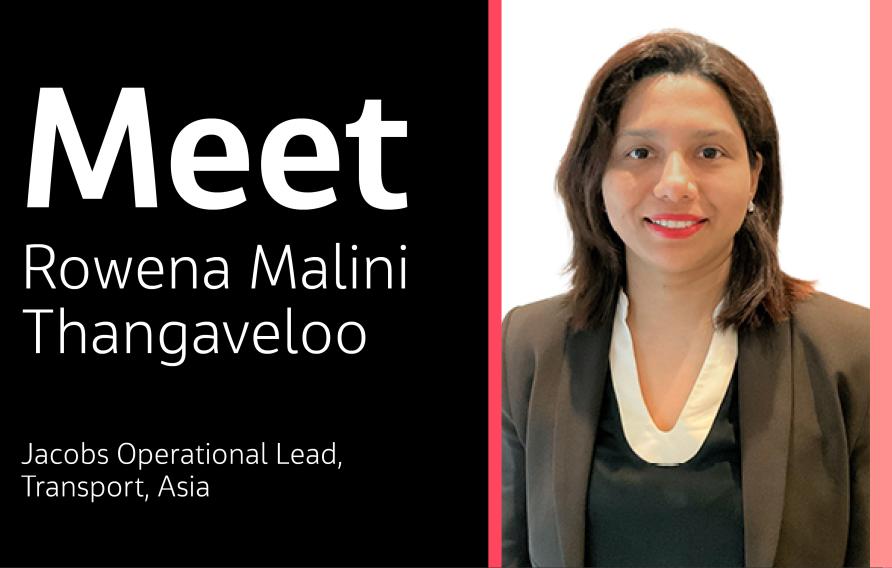 News
NewsRevolutionizing Transport: A Q&A with Rowena Malini Thangaveloo
We speak to Jacobs’ Operational Lead for Transport in Asia, Rowena Malini Thangaveloo, as she reflects on her journey at #OurJacobs and sheds light on some of the cutting-edge advancements that have the potential to reshape the future of the industry.
-
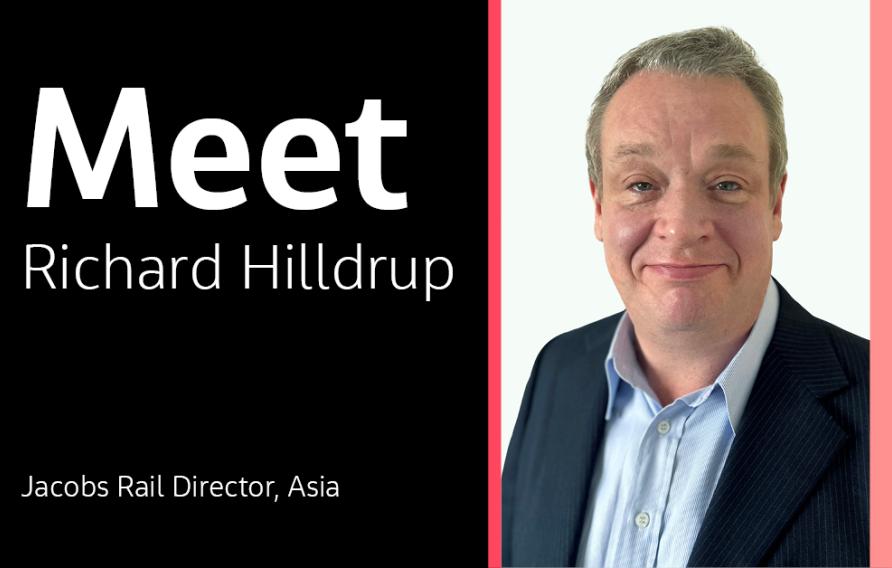 News
NewsExploring the Rail Industry’s Remarkable Transformation: A Q&A with Richard Hilldrup
We sat down with Jacobs’ Rail Director, Asia Richard Hilldrup, who takes us through his career journey at Jacobs and shares his thoughts on the remarkable transformation of the rail industry, some of the projects he is working on, and what excites him the most about the future of the ever-evolving sector.
-
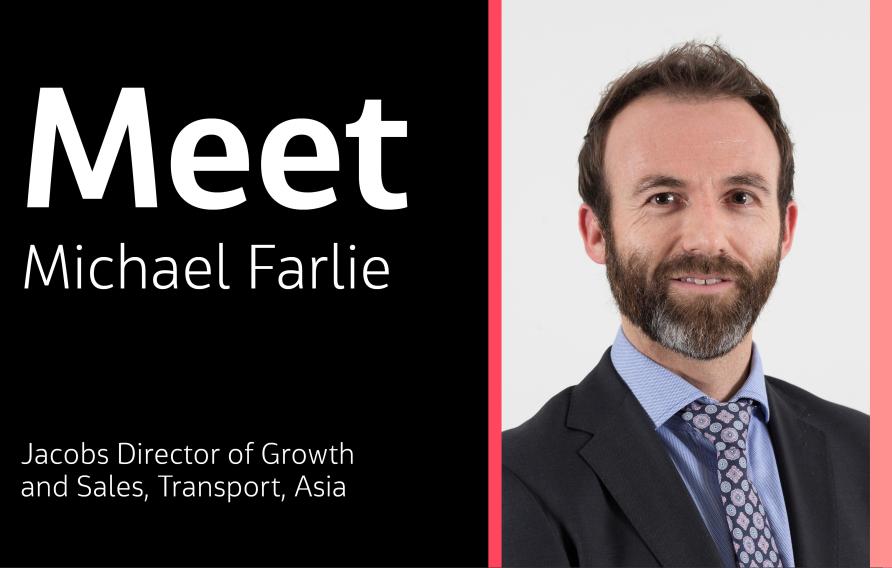 News
NewsShaping the Future of Transportation in Asia: A Q&A with Michael Farlie
Our director of growth and sales for transport, Asia, unpacks the role of resilient and inclusive transport infrastructure, including rail, in accelerating transformation in the region.
-
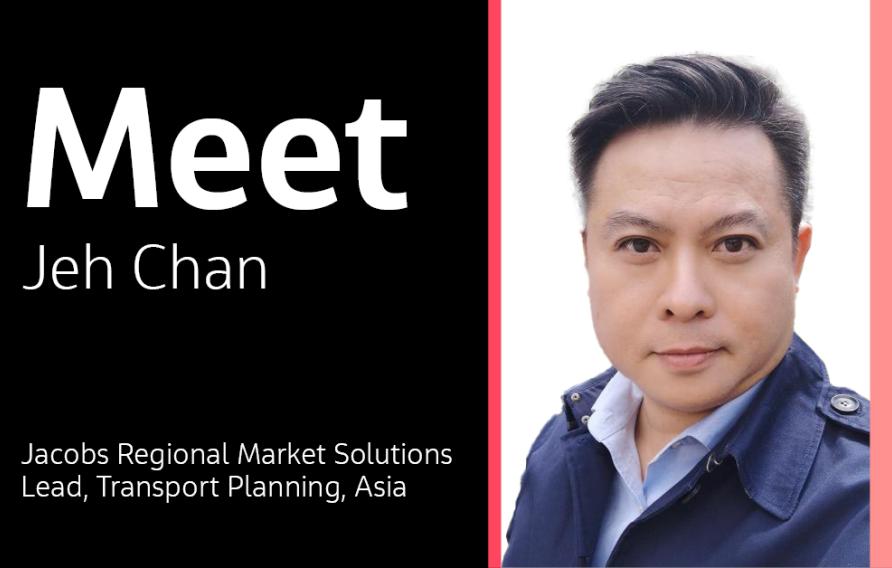 News
NewsHow Transport Planning is Shaping the Future of Mobility: A Q&A with Jeh Chan
Transport planning plays a critical role in shaping the mobility landscape of our cities. With the world becoming increasingly urbanized and the demand for mobility on the rise, it is important that we adopt a strategic and evidence-based approach to transport planning. Regional Market Solutions Lead for Mobility in Asia Jeh Chan shares his insights on this, how we’re helping our clients navigate the complexities involved and his hope for a futuristic mode of transport to become the norm.
-
 News
NewsNavigating Mobility, Infrastructure Challenges for Transport in Asia: A Q&A with Wesley Wong
In this interview, we caught up with Jacobs’ Head of Sector for Transport and Infrastructure Asia Wesley Wong on the evolution of the transport sector, emerging trends and technologies that will continue to accelerate the industry's revolution and how we’re helping clients navigate mobility and infrastructure challenges in the region.












































